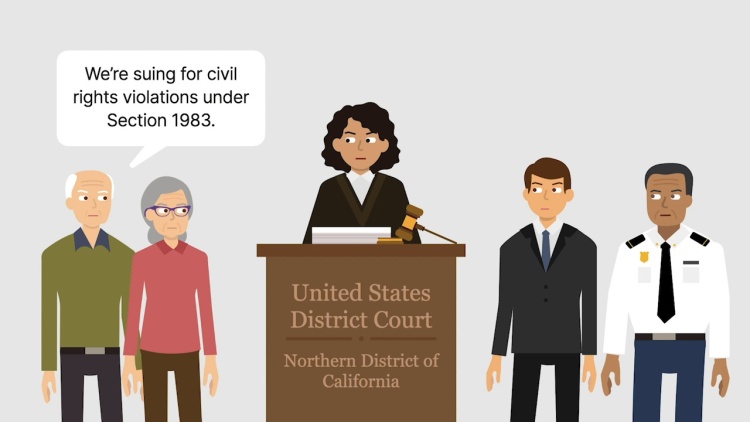Banks v. City of Emeryville
United States District Court for the Northern District of California
109 F.R.D. 535 (1985)
- Written by Matthew Carney, JD
Facts
On October 31, 1982, Mercedes Banks was arrested in Emeryville, California for public intoxication. She was brought to the Emeryville Police Department and placed in a holding cell. Later that night, the police station caught fire, and Banks burned to death inside. It was eventually determined that the fire originated in Banks's mattress. Banks’s family (plaintiff) brought suit against the City of Emeryville (defendant) and the chief of the Emeryville Police Department (defendant), alleging under 42 U.S.C. § 1983 that the jail cell was inadequately furnished with dangerous material. The Banks family further contended that the police department inadequately supervised the jail, which lead to Banks’s death. The city argued that Banks’s death was a suicide. The defendants later filed a third-party complaint against various parties who were responsible for manufacturing, distributing, and selling the mattress involved in Banks’s death. The defendants asserted claims for "general" indemnification, as well as for indemnification or contribution under various state-law theories, arguing that the mattress was a defective product because it contained a dangerous polyurethane filling. The third-party defendants moved for judgment on the pleadings.
Rule of Law
Issue
Holding and Reasoning (Williams, J.)
What to do next…
Here's why 911,000 law students have relied on our case briefs:
- Written by law professors and practitioners, not other law students. 47,100 briefs, keyed to 997 casebooks. Top-notch customer support.
- The right amount of information, includes the facts, issues, rule of law, holding and reasoning, and any concurrences and dissents.
- Access in your classes, works on your mobile and tablet. Massive library of related video lessons and high quality multiple-choice questions.
- Easy to use, uniform format for every case brief. Written in plain English, not in legalese. Our briefs summarize and simplify; they don’t just repeat the court’s language.





